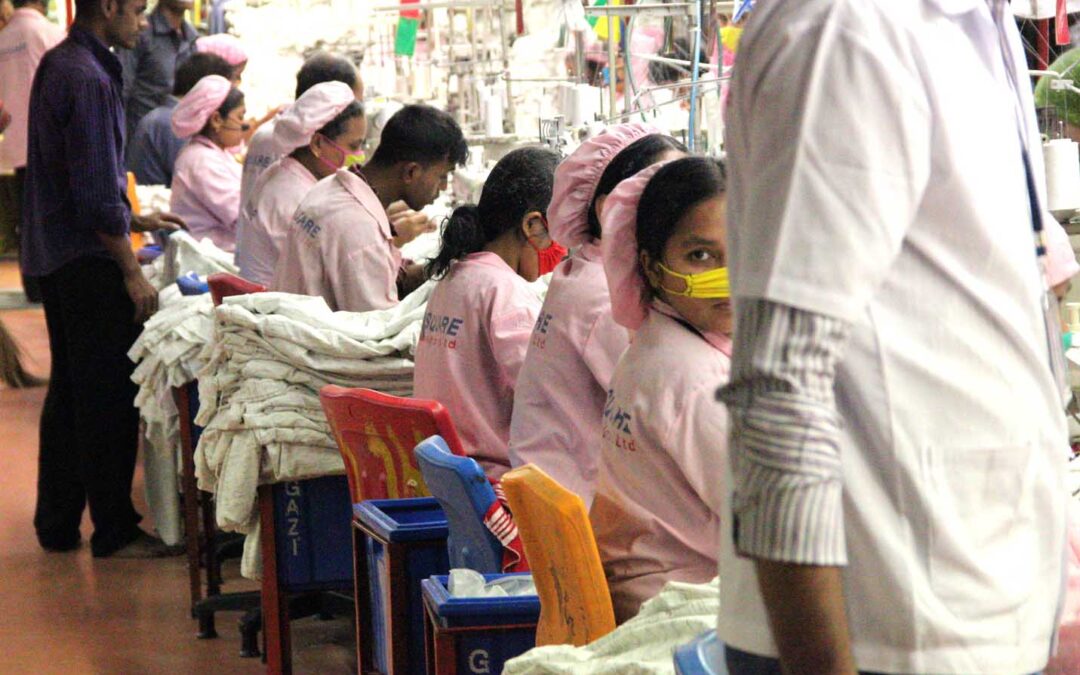
Oct 20, 2016 | Advocacy, Analysis briefs, News
In a paper published today, the ICJ recommends a series of substantive elements that it considers as key to an effective treaty on business and human rights.
The ICJ is publishing this paper as the second session of the open ended intergovernmental working group on transnational corporations and other business enterprises with respect to human rights (OEIWG) will be held next week (24-28 October).
On 26 June 2014, the United Nations Human Rights Council (HRC) adopted Resolution 26/9 establishing an “open ended intergovernmental working group on transnational corporations and other business enterprises with respect to human rights” (OEIWG) with the mandate to “elaborate an international legally binding instrument to regulate, in international human rights law, the activities of transnational corporations and other business enterprises”.
The first session of the OEIWG took place from 6 to 10 July 2015.
The ICJ supports the objective of establishing an international legally binding instrument on transnational corporations and other business enterprises, with a focus on business accountability and access to effective remedies for human rights abuses by business enterprises.
There is a substantial international protection gap to be filled in this respect, on which the ICJ has previously commented extensively.
It is with a view to closing this gap and ensuring that international human rights law can optimally fulfil its protective function that the ICJ is engaging in the present treaty process.
The key elements in the ICJ paper are a contribution to the ongoing discussions about the future instrument, without being exhaustive as to such elements.
The ICJ has already published a paper focused on issues of scope of businesses to be addressed in the treaty, in particular the meaning or “transnational corporations (TNCs) and other business enterprises” a question which remains unresolved and is contentious in the OEIWG discussions.
The present paper will focus on the possible content of the prospective treaty.
universal-oewg-session-2-icj-submission-advocacy-analysis-brief-2016-eng (full text in PDF)
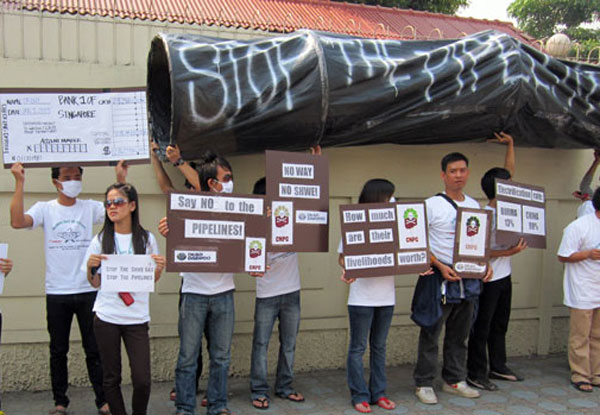
Sep 18, 2016 | News
The ICJ held a workshop on Environmental Impact Assessment in Kyauk Phyu on 17-18 September 2016. Thirteen women and 30 men attended from Kyauk Phyu town, its surrounding villages and the regional capital Sittwe.
Kyauk Phyu is the proposed site for a megaproject to include a Special Economic Zone and deep seaport in Myanmar’s westernmost Rakhine State.
A Chinese company plans to develop the projects and the newly elected Myanmar Government is considering its future.
The EIA workshop included lawyers and civil society representatives as well as village administrators from each of the nine village administrative tracts in the proposed SEZ area.
An EIA is designed to avoid, minimize, eliminate and reduce harmful impacts of development projects.
It can require revising plans, making alternative arrangements and even cancelling project components.
Myanmar law now requires EIAs, including in SEZs, under the 2014 SEZ Law and 2015 EIA Procedure. Health, livelihood and social impact assessments are critical to this process.
Projects may only commence after the Environment Ministry approves an EIA.
Sean Bain, ICJ Legal Consultant for Myanmar, shared updates from research on SEZ legal frameworks and project plans.
The ICJ’s Legal Researcher, U Hayman Oo, facilitated discussions and linked these laws with local developments.
Participants were encouraged to document their land and livelihoods so they may have an evidence base to refer to in future.
Matthew Baird, an environmental lawyer supporting both the Environment Ministry and civil society groups, outlined each step involved in an EIA.
He emphasized the importance of public participation throughout the process – particularly in the early screening and scoping stages.
Early community engagement is critical to influence the focus and scope of the investigation, which would inform the draft EIA Report developed by an EIA consultancy firm.
Daw Khin Su Su Naing, from Coffey, explained the role of the consultancy firms hired by companies to conduct EIAs.
She described how social impacts are assessed, providing examples from elsewhere in Myanmar. Public participation was again emphasised as crucial.
U Mya Hlaing, from the Thilawa Social Development Group, shared community experiences from the development of Myanmar’s only active SEZ – located in Thilawa, across the river from Yangon. Villagers resettled by the project remain concerned about the standard of relocation sites and loss of livelihood opportunities.
Community organizing in Thilawa has been an important factor in improving public participation in EIA and resettlement processes.
Dr Daniel Aguirre, the ICJ’s International Legal Adviser, discussed international business and human rights frameworks, and the monitoring role of civil society.
From Earth Rights International, U Zaw Zaw explained how an Operational Grievance Mechanism can be a useful tool for creating a communication channel between affected people and companies.
An OGM cannot solve all problems, but can help to discuss issues and remedies as they arise.
Many participants have experienced impacts from irresponsible and at times illegal business activities.
Kyauk Phyu hosts oil and gas facilities that serve a pipeline, finished in 2013, linking the Bay of Bengal with western China. No public EIA was conducted, and locals say the pipeline project led to land loss, deteriorating livelihoods and environmental pollution.
Many are still owed compensation and some were imprisoned for protesting to demand remedies.
Workshop participants expressed concerns that these problems will be repeated.
U Mya Hlaing encouraged locals in Kyauk Phyu to review the legal procedures and understand government obligations: “I am just a poorly educated farmer, but I have carefully read the laws and it has helped our community to demand our rights.”
He encouraged participants to raise concerns with Myanmar’s new governance bodies for SEZ management.
This was the ICJ’s third event in Kyauk Phyu over two years, with further initiatives planned.
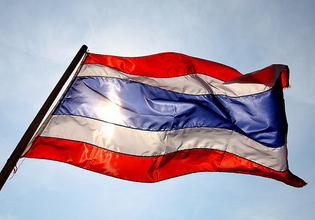
May 30, 2016 | News
The ongoing criminal trial in the Loei Provincial Court, where a verdict is awaited tomorrow, is an important test of Thailand’s commitment to hold those responsible for criminal offences against human rights defenders to account, the ICJ and Protection International said today.
On 31 May, the Loei Provincial Court will render its verdict following the trial of retired Royal Thai Army officer, Lt Gen Poramet Pomnak, and his son, Royal Thai Army officer, Lt Col Poramin Pomnak, on criminal charges related to their alleged participation in a violent attack by a group of over 100 armed men against members of the Khon Rak Ban Kerd Group (KRBKG) in Nanonbong village in Loei and other villagers.
The victims were assaulted and held captive for over seven hours during the attack in the evening of 15 May 2014.
More than 20 people were injured, with seven requiring hospitalization for serious injuries.
KRBKG is a community-based group protesting what they allege is the damaging impact of mining operations on their health and their environment.
Most of KRBKG’s activities have focused on stopping the operations of the Phuthapfa gold mine operated by Thai company, Tungkum Ltd., situated in Loei Province.
“This case has become emblematic of the human rights abuses faced by human rights defenders trying to protect their communities in Thailand,” said Sam Zarifi, ICJ’s Asia Director. “Many people are looking at this case to see whether the Thai government will follow through on its commitment to protect human rights defenders.”
The attack on Nanonbong village occurred after KRBKG and local residents barricaded the road to the gold mine, which passes through the village.
During the attack, the barricade was destroyed and at least 13 trucks were reportedly seen transporting materials from the mine site.
Partly based on the villagers’ testimony that Lt Col Poramet Pomnak and Lt Col Poramin Pomnak were involved in the 15 May violence, the two were indicted on several charges, including offences of ‘injury to the person causing bodily harm’ and ‘false imprisonment’ (or illegal deprivation of liberty), under articles 295 and 309 of the Thai Criminal Code.
“Given credible reports that a group of over 100 armed men were involved, the ICJ is concerned that only two people have been indicted for the attack, and we are therefore calling on the Thai authorities to re-open investigations and ensure all those responsible are held to account and redress is provided for the victims concerned,” Zarifi added.
The case against Lt Col Poramet Pomnak and Lt Col Poramin Pomnak comes against a background of disputes between KRBKG and Tungkum Ltd.
The company filed at least 19 criminal and civil lawsuits against 33 members of KRBKG and other villagers in the past seven years.
One of those cases includes claims of criminal defamation against a 15-year old girl who allegedly made negative statements about the company’s activities on a television program.
Members of KRBKG have joined as plaintiffs in the criminal case and are demanding compensation from the two defendants.
Background
Lt Col Poramet Pomnak and Lt Col Poramin Pomnak were formally indicted on the following charges of the Thai Penal Code: articles 295 (‘injury to the person causing bodily harm’) and 296 (sentencing for bodily harm), 309 (‘false imprisonment’ or ‘illegal confinement’) and 310 (sentencing for false imprisonment), 358 (‘offence of mischief’ or ‘damage to property’) 371 (‘offence of bearing arms’), 376 (‘offence of discharging a firearm’), 391 (sentencing for acts of violence not amounting to bodily harm) taken together with articles 32, 33, (‘forfeiture of property used in the commission of an offence’) 83, 84, (principals and accomplices, accessories or conspirators) 91, (articles 90 and 91 set out provisions for sentencing when an act constitutes multiple offences. Sentences can be awarded for each offence consecutively, but with a maximum time as prescribed by article 91); and articles 4, 7, 8bis, 72, 72bis of the Firearms, Ammunition, Explosives, Fireworks, and the Equivalent of Firearms Act B.E.2490 (1947); article 3 of the Firearms, Ammunition, Explosives, Fireworks, and the Equivalent of Firearms Act (No.3) B.E.2501 (1958); No. 3, 6, 7 of the Order of the Announcement of the National Administrative Reform Council no.44 dated 21 October 1976.
Thailand has a legal obligation to protect all human rights defenders from retaliation for the legitimate and lawful exercise of their rights. On 17 December 2015, Thailand joined 126 other States at the UN General Assembly in adopting one of the latest UN resolutions on human rights defenders. General Assembly resolution 70/161 recognizes the importance of States’ protection of human rights defenders, in particular from being prosecuted for peaceful activities and against other threats, harassment and intimidation; and encourages States to investigate allegations of intimidation and reprisals, and to bring perpetrators to justice.
Thailand-Loei case-News-2016-THA (full text in Thai, PDF)
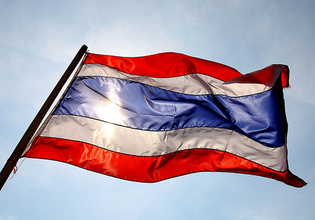
Mar 15, 2016 | News
Today’s acquittal of the only person facing charges for the killing of lands rights activist Chai Bunthonglek, highlights the urgent need for the Thai Government to protect human rights defenders in the country, said the ICJ today.
In addition to Chai Bunthonglek, a member of the Southern Peasant Federation of Thailand (SPFT), three other SPFT activists have been killed since 2010: Montha Chukaew and Pranee Boonrat in 2012 and Somporn Pattanaphum in 2010.
No one has been prosecuted for these three killings, reportedly due to insufficient evidence obtained by the police.
“The result in this case underscores the pressing need for the Department of Special Investigations to investigate the pattern of killings of land rights activists in southern Thailand,” said Kingsley Abbott, ICJ International Legal Adviser for Southeast Asia.
Chai Bunthonglek was killed on 11 February 2015. All four SPFT activists killed since 2010 had been advocating for the land rights of poor farmers who are in a dispute with the Government and a palm oil company operated by Jiew Kang Jue Pattana Co. Ltd.
“Today’s acquittal means that no-one has been held accountable for the killing of Chai Bunthonglek, representing another failure to bring to justice those responsible for crimes against human rights defenders and, in particular, those trying to uphold social and economic rights in Thailand,” said Abbott.
“The ICJ calls on the Thai Government to ensure justice and effective remedies for human rights defenders.”
On 15 March, the Viangsra Provincial Court acquitted Santi Wanthong, who was accused of driving the motorcycle from which Chai Bunthonglek, 61-years-old, was shot six times and killed in front of his family in Klong Sai Pattana in Surat Thani Province.
Two other suspects initially arrested for the crime were not indicted.
The DSI has the power to assume jurisdiction over “special” criminal cases including complex cases that require special inquiry, crimes committed by organized criminal groups, and cases where the principal suspect is “an influential person.”
The trial court held today that prosecution witnesses could not properly identify the defendant, and that a cap and gun collected from his house could not be positively identified as belonging to the man who had been involved in attacking Chai Bunthonglek.
Chai Bunthonglek’s family intends to appeal the verdict, the ICJ has been told. They have 30 days to file an appeal.
Witnesses in the case, as well as members of SPFT, have expressed their fear of further attacks. Suraphon Songru, member of the Steering Group of the SPFT, told the ICJ: “the perpetrators – which the community believe may be linked to the local authorities in the area – are still out there, which means another killing could take place.”
The ICJ called on Thai authorities to ensure the safety of all witnesses and ensure the safety of all human rights defenders, including members of SPFT, in Surat Thani.
Background
Santi Wanthong was formally indicted on the following charges: murder of another person (section 288 of the Thai Criminal Code); jointly premeditated murder (section 289 of the Thai Criminal Code); possession of a firearm without a permit (section 371 of the Thai Criminal Code); and possession of ammunition for a firearm without a permit (sections 7, 8 and 72 of the Gun, Ammunition, Explosive Substance, Firework and Artificial Gun Weapon Act).
SPFT was formed in 2008 and campaigns for the right to agricultural land in the Khlong Sai Pattana and Permsub area, in Surat Thani Province and other areas in the region.
Thailand is a state party to the International Covenant on Economic, Social and Cultural Rights (ICESCR) and had its review before the Committee of the ICESCR in June 2015, where the killings of land rights defenders was particularly noted. The Committee urged Thailand to “adopt all measures necessary to protect human rights activists, including those working to defend economic, social and cultural rights, from any and all acts of intimidation, harassment and killings and to ensure that perpetrators of such acts are brought to justice.” The obligation to protect the right to life and other rights of human rights defenders working on economic, social and cultural rights, and to take effective criminal proceedings in response to such crimes, is also an obligation of Thailand under the International Covenant on Civil and Political Rights, and is recognized in numerous UN standards on protection of human rights defenders.
Contact
Kingsley Abbott, International Legal Adviser for Southeast Asia, t +66 94 470 1345 ; e: kingsley.abbott(a)icj.org
Thailand-Chai case-News-2016-THA (full text in Thai, PDF)
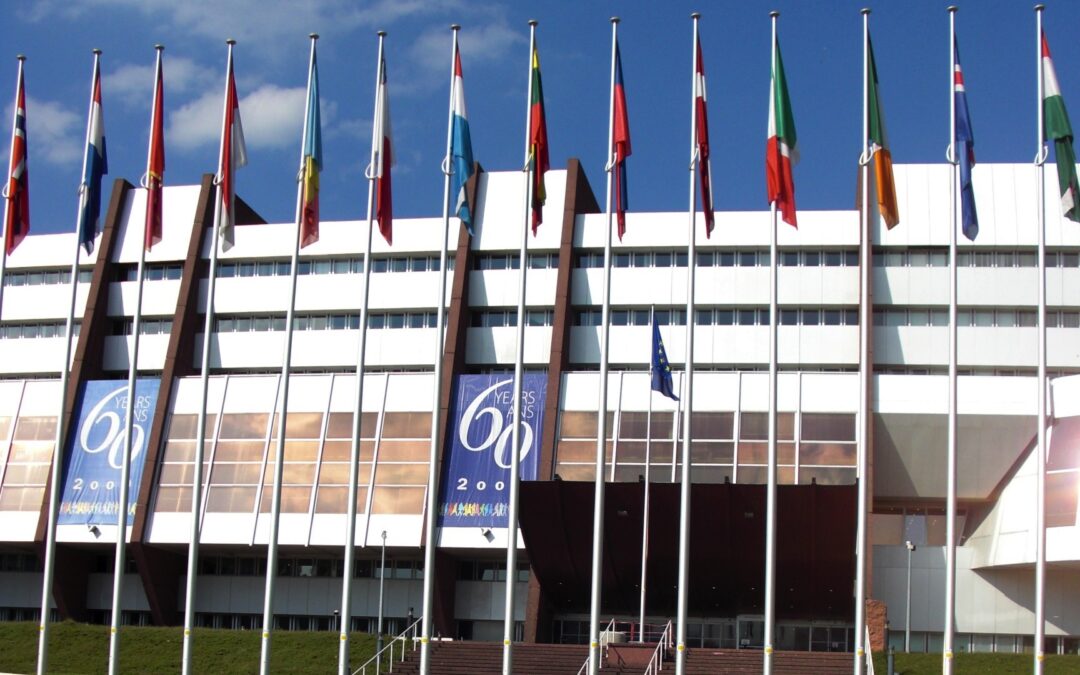
Mar 11, 2016 | Advocacy
The ICJ, Amnesty, ECCJ and FIDH welcome the adoption of the Recommendation of the Committee of Ministers to member States on human rights and business (the Recommendation) on 3 March 2016.
This is the Council of Europe’s first inter-governmental instrument on business and human rights.
Adopted by the organization’s highest decision-making body, the agreement by all 47 Council of Europe member States is a significant achievement.
If adequately implemented, the Recommendation can contribute to an enhanced system of legal accountability of business enterprises involved in human rights abuses and access to effective remedy for those whose rights have been affected.
EU-coe_recommendation-Advocacy-2016-ENG (full text in PDF)









